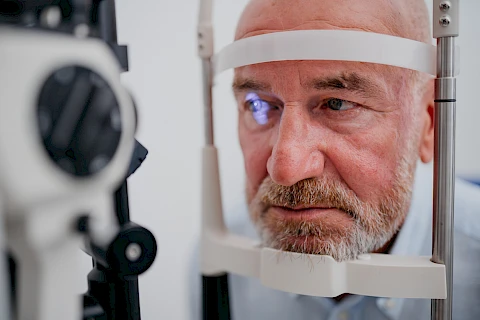
November is Diabetic Eye Disease Month, the perfect time to focus on the eye health of seniors with diabetes. Eye health is critical to diabetic management, as the condition increases the risk of complications in seniors. Understanding these risks and encouraging seniors to take proactive steps in maintaining better eye health can significantly reduce the likelihood of more severe vision issues.
Diabetes and Eye Diseases
Diabetes can lead to several eye conditions that may threaten sight. Diabetic retinopathy can damage the blood vessels in the retina, which can lead to vision impairment. Glaucoma, a condition involving increased pressure inside the eye, can also develop more readily among seniors with diabetes. Cataracts, characterized by clouded lenses, are another concern, often occurring earlier in people with diabetes. These conditions can progress silently, making proactive care integral in preserving sight.
Scheduling Regular Eye Exams
Regular eye exams are vital in early detection and prevention of eye diseases. Seniors with diabetes should strive to have a comprehensive eye exam at least once a year. Look for specialists with experience in diabetic eye care. Keep records of past eye exams and test results to ensure ongoing monitoring and guide discussions with healthcare providers.
Managing Blood Sugar Levels
High blood sugar levels can damage the small blood vessels in the eyes, increasing the likelihood of developing severe eye conditions. To maintain stable blood sugar levels among senior loved ones, consider the following tips:
- Monitor blood sugar regularly and keep a record.
- Provide seniors with a diabetes-friendly diet rich in vegetables, lean proteins, and whole grains.
- Follow medication plans as prescribed by the senior's healthcare team.
Recognizing Signs of Vision Changes
Be on the lookout for symptoms that might indicate vision changes. These can include blurred or distorted vision, sudden loss of vision in one or both eyes, dark spots or floaters, and eye pain or pressure. Early detection and timely reporting of these symptoms to healthcare providers can prevent further damage. Encourage seniors to communicate openly with their eye doctor about any changes they notice in their vision.
Collaborating With the Healthcare Team
A coordinated approach to healthcare is necessary for managing senior eye health, particularly for those with diabetes. Work closely with the senior's various healthcare providers, including the primary doctor, endocrinologist, and eye specialist, for prompt detection and treatment of any vision issues. Monitor changes in your senior loved one's vision and communicate regularly with their healthcare team to determine when adjustments to their care plans are in order. Support groups and diabetic care education sessions can also provide additional support to caregivers, offering tips on improving health outcomes.
Make Senior Helpers Part of Your Loved One's Diabetes Care Team
Proactive eye care is vital for seniors with diabetes, ensuring prompt detection of vision changes and preventing more serious eye complications. If you need help caring for a senior loved one with diabetes, partner with Senior Helpers Tulsa. We specialize in senior homecare solutions covering everything from personal care and companionship to chronic disease care and other aspects of senior care. Contact us for personalized care in Tulsa, McAlester, Broken Arrow, and Sand Springs.